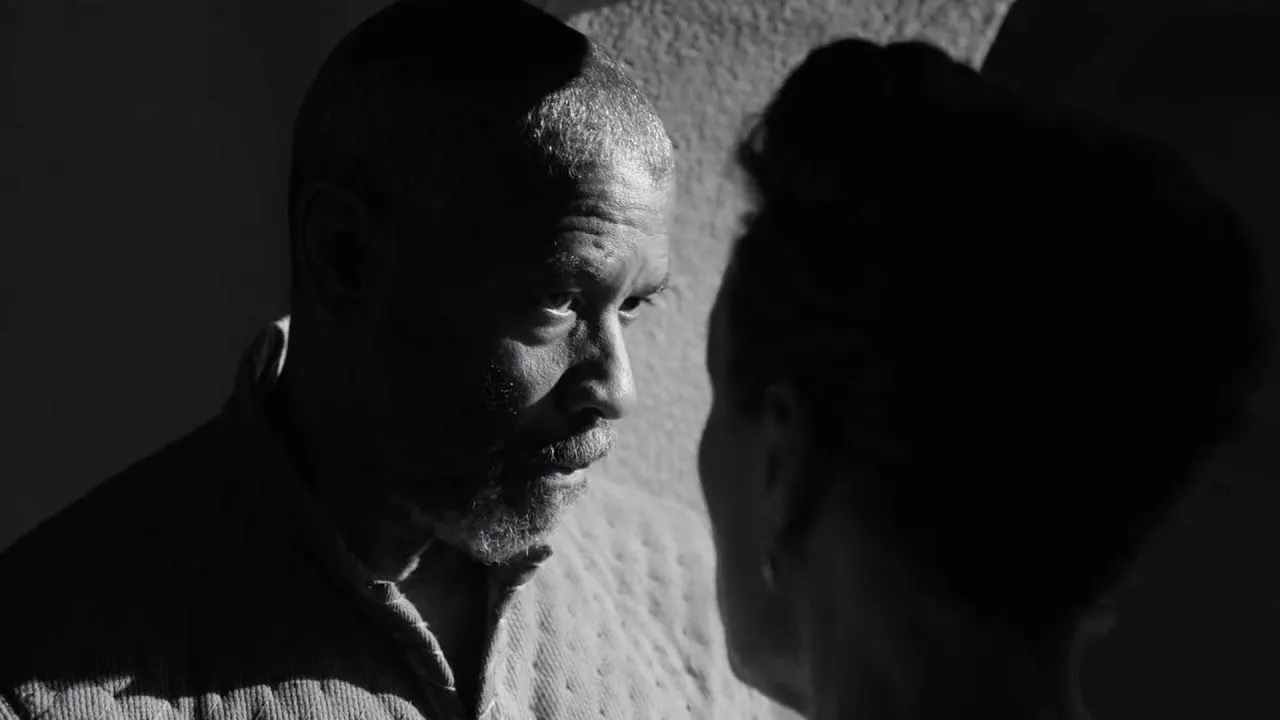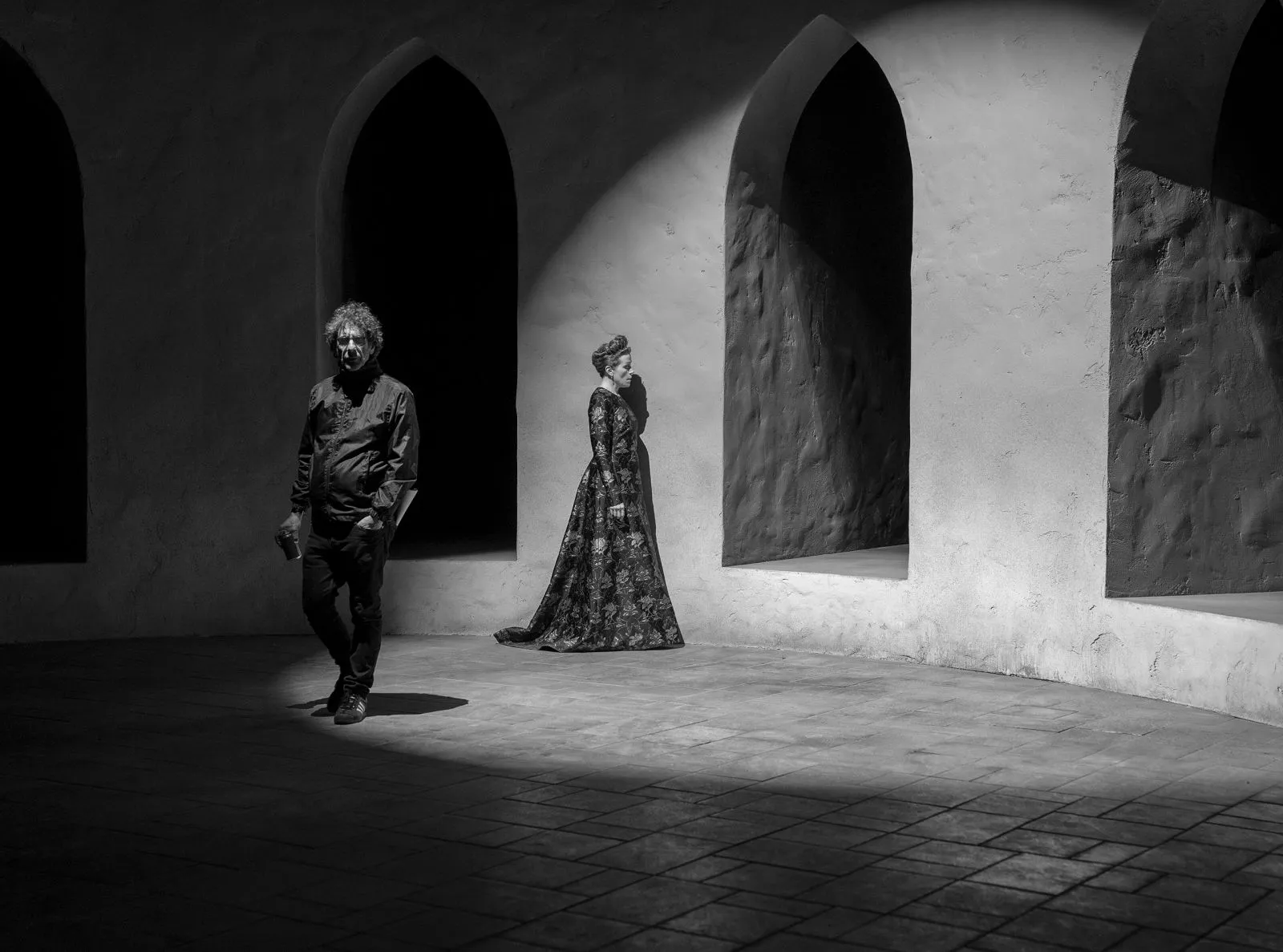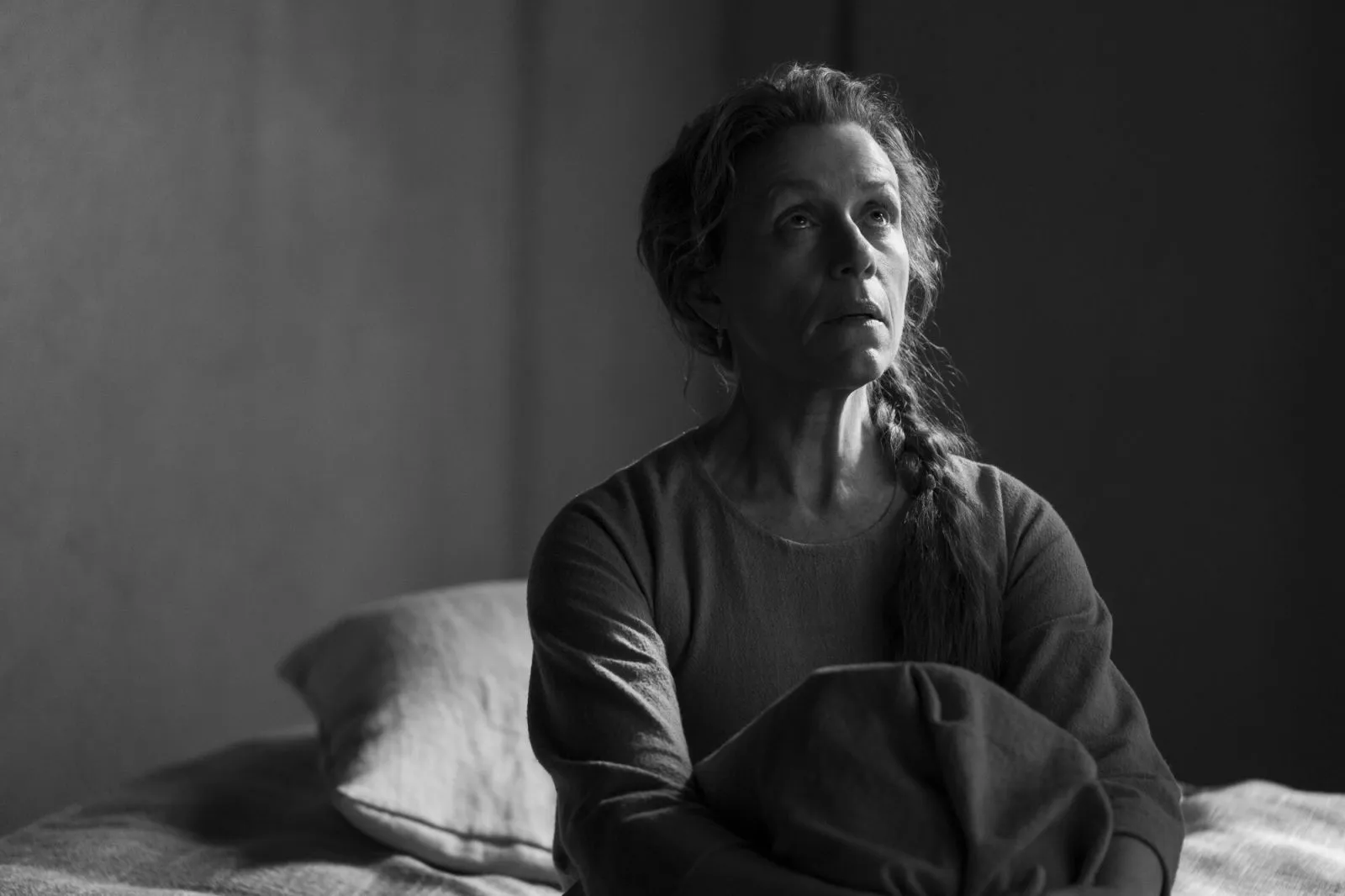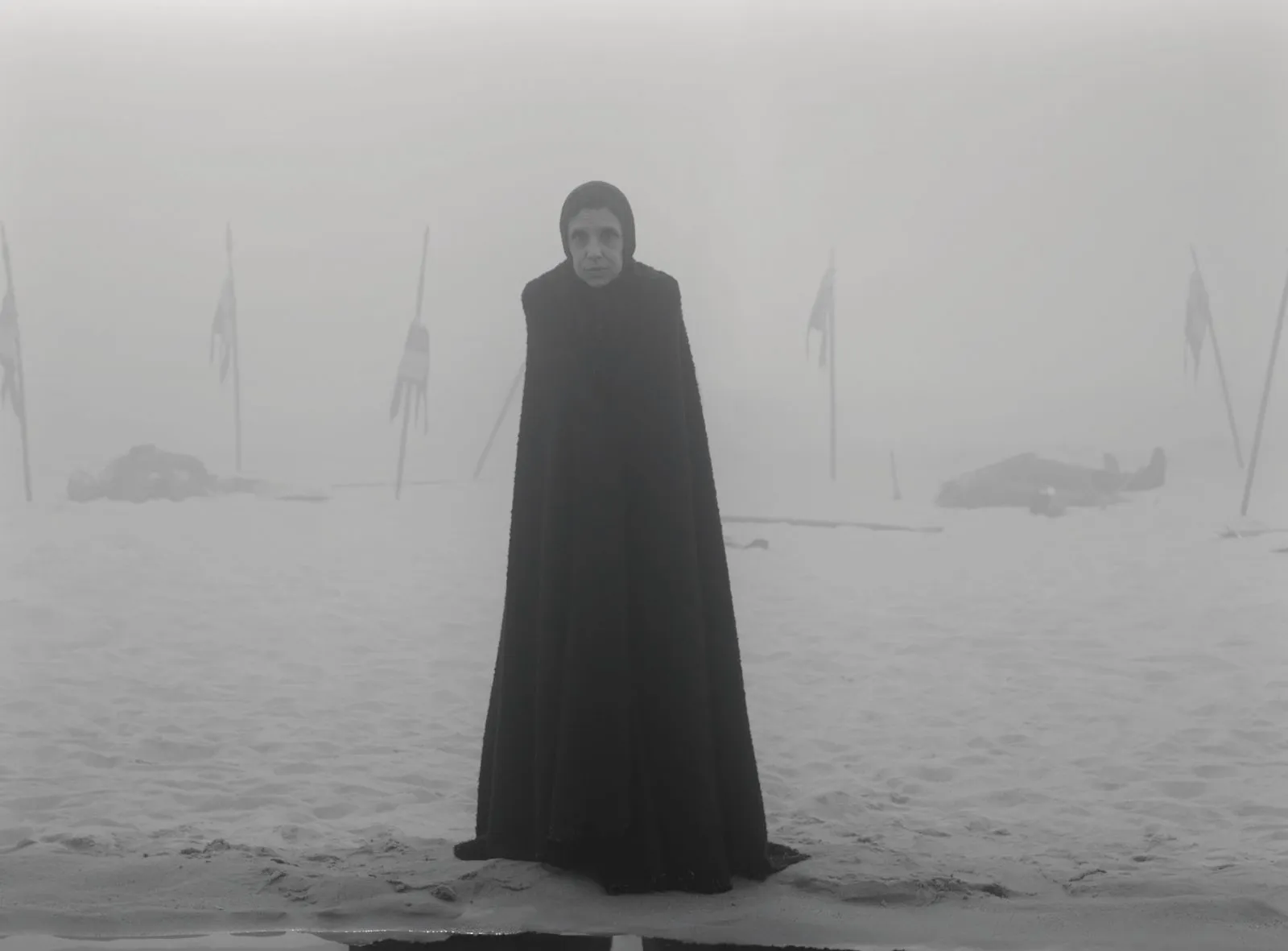The Tragedy of Macbeth: A Coen Brother’s Solo Act
Following a hard-won victory against Norwegian and Irish forces, two Scottish generals, Macbeth (Denzel Washington) and Banquo (Bertie Carvel), traverse a battlefield soaked in blood and shrouded in mist. They encounter three witches who deliver cryptic prophecies: Macbeth is promised the title of Thane, and later, the crown; Banquo is told he will not rule himself, but his descendants will become kings. Soon after, a messenger arrives, bestowing upon Macbeth the title of Thane of Cawdor for his valor in battle. With the first prophecy fulfilled, Macbeth and his ambitious wife (Frances McDormand) decide to expedite the fulfillment of the second, plotting the murder of King Duncan of Scotland (Brendan Gleeson).

Denzel Washington as Macbeth in The Tragedy of Macbeth
Even with “The Tragedy of Macbeth” already released in American cinemas and soon to be available on Apple TV+, it’s still surprising that Joel Coen directed it, and for the first time without his brother Ethan. While one could speculate about the reasons for the fraternal split and the choice of such atypical material, it’s more intriguing to consider how this new film fits into Joel Coen’s filmography and the lineage of previous “Macbeth” adaptations.

Joel Coen on the set of The Tragedy of Macbeth
Echoes of Shakespeare in Coen’s Oeuvre
In retrospect, echoes of Shakespeare’s play seem to resonate throughout Coen’s filmography. The iconic line, “life is a tale told by an idiot, full of sound and fury, signifying nothing,” could serve as a leitmotif for his work. His films are often populated by idiots, filled with commotion, aggression, and, crucially, devoid of moralizing lessons. It’s no coincidence that the underrated comedy “Burn After Reading” concludes with the strained conclusion that they “learned not to do it again.” Conversely, there’s a reciprocal connection. Macbeth is a quintessential Coen character: an honest, hardworking family man presented with an opportunity to improve his situation, requiring only a single transgression and a little blood on his hands. The only difference is that he lives not in 20th-century America, but in medieval Scotland.

Frances McDormand as Lady Macbeth in The Tragedy of Macbeth
Recurring Themes and Motifs
Furthermore, one can identify several recurring motifs from Coen’s past films: parental anxiety (“Raising Arizona,” “Fargo,” “Inside Llewyn Davis”; according to Joel’s interviews, this is one of the reasons for creating the film) or the narrative of characters from the past and their uncertain future (anxiously awaited in “No Country for Old Men,” “A Serious Man,” and “Inside Llewyn Davis,” and eagerly anticipated in “Fargo” and “The Big Lebowski”). In short, “The Tragedy of Macbeth” may seem like a sore thumb in Joel Coen’s filmography at first glance, but if accepted as a Coen film, even the final resolution with the last prophecy (Macbeth is promised that he will “not be killed by one of woman born,” but is ultimately beheaded by Macduff, who reveals he was delivered by cesarean section) feels characteristically Coen-esque in its irony and elicits laughter.
A Cinematic Play
The question remains: how does “The Tragedy of Macbeth” compare to previous adaptations of the play? Before Coen, Orson Welles and Akira Kurosawa offered their interpretations, emphasizing the psychological depth of the source material and the expressiveness of cinematic language (the former created a medieval noir, the latter a samurai film steeped in mysticism); later, Roman Polanski and Justin Kurzel opted for naturalism and blockbuster scale. Coen’s version is clearly closer to the interpretation and visual style of the former duo, but adopts a cynicism from the latter that resonates with modern audiences: all this bloodshed is not only grotesque, but also meaningless.

Kathryn Hunter as the witches in The Tragedy of Macbeth
It would be a mistake to call “The Tragedy of Macbeth” a conventional film; it’s more of a cinematic play, constantly reminding the viewer that they are witnessing a raw fusion of cinema and theater. On one hand, there’s the monochrome imagery with Bruno Delbonnel’s impeccable cinematography, inventive editing, and Carter Burwell’s unsettling soundtrack, befitting the thriller/horror genres; on the other hand, there’s the hermetic and lifeless stage space with minimal props and the theatrically unnatural acting (best handled by the ever-composed Denzel Washington), which, in the performance of Kathryn Hunter as the witches, borders on performance art.
The result of this symbiosis is not always successful: it’s a very stylish film, undeniably a technical masterpiece, but it often loses the viewer, giving them time not to catch their breath, but to look away and contemplate their own thoughts. It seems to lack Joel Coen’s writing touch, who only changed a couple of lines in the original text due to the age of the central acting duo and acted more as a benevolent editor, slightly shortening the play without losing its essence. The result is seemingly the same old “Macbeth”—the same tragedy of metamorphosis, fatalism, and paranoia, which, alas, without an authorial twist, is destined to be the subject of endless debates about why and who needs another straightforward adaptation of Shakespeare in our time.